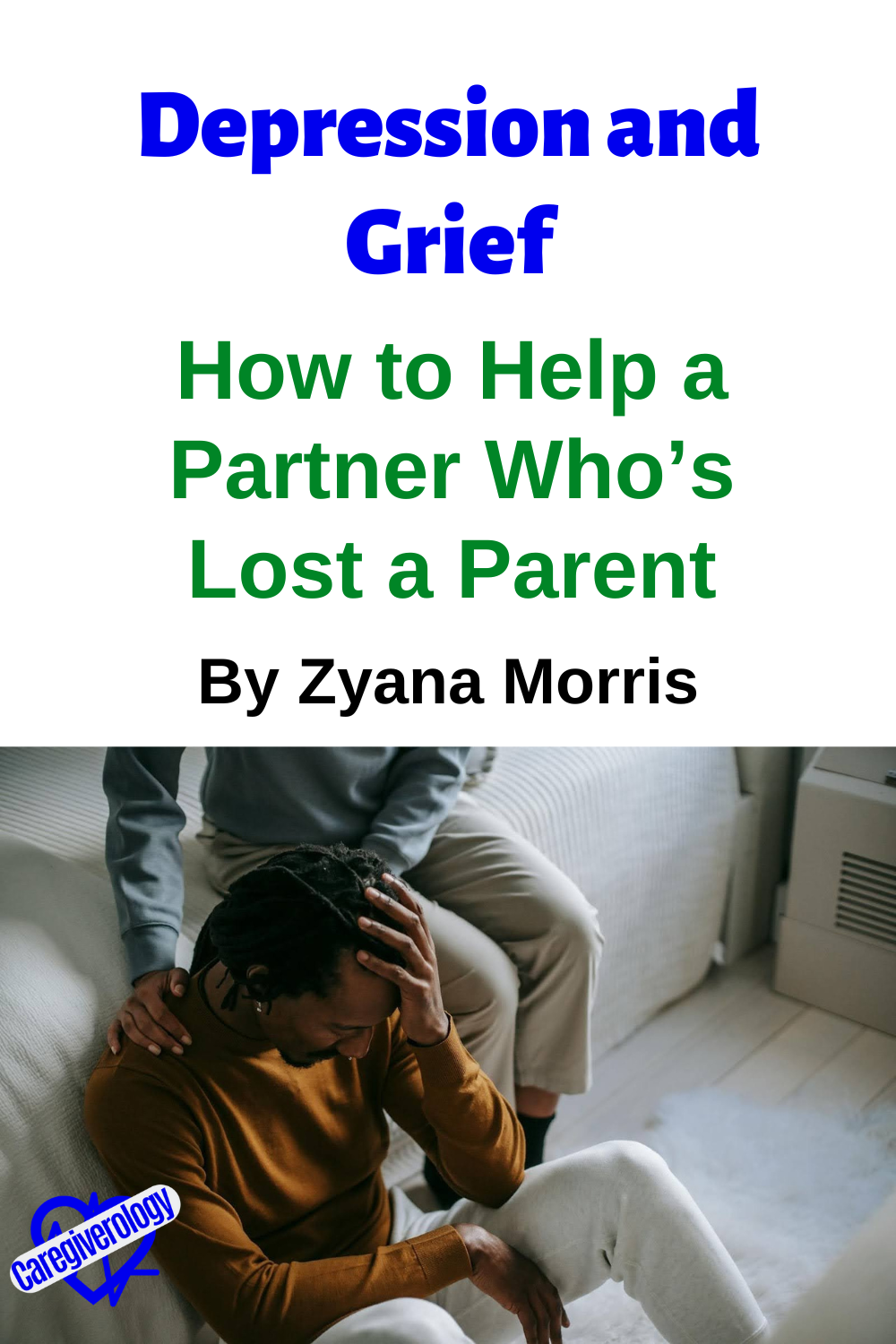Depression and Grief: How to Help a Partner Who’s Lost a Parent

Losing a loved one is always a difficult experience, but the death of a parent can be particularly devastating. The bond between parent and child is unique, and when a parent passes, the loss can take a major toll on anyone’s mental state. If your partner has recently lost a parent, they might be experiencing a whirlwind of emotions, including intense grief, anger, confusion, and, above all, depression. Without your support, their depression can deepen, making recovery more difficult. It’s important to understand that while you can’t take away their pain, your support can make a crucial difference in how they cope and heal.
This article will provide eight effective ways to help your partner navigate this challenging time.
1. Be Patient and Avoid Pressuring Them to Move On
Grief is not something that can be resolved quickly or neatly. Each person processes grief in their own way and at their own pace. As a supportive partner, it’s essential not to pressure them into moving on or to imply that they should be over their loss by now. Phrases like “It’s time to move on” or “Aren’t you feeling better yet?” can do more harm than good. Instead, offer reassurance that it’s okay for them to take as much time as they need to grieve and that you’re there to support them through every step of the process.
2. Encourage Medical Treatments like Ketamine Infusion Therapy
If your partner’s depression becomes severe, it might be necessary to consider medical treatment. One option is ketamine infusion therapy, which has gained recognition for its effectiveness in treating major depression, particularly when other treatments haven’t worked. Ketamine works by altering brain chemicals associated with mood regulation, and it can offer rapid relief from depressive symptoms. This treatment may be an option if your partner is not responding well to traditional methods such as talk therapy or antidepressants. However, it’s important to consult a healthcare provider to determine whether ketamine therapy is appropriate for their condition.
3. Listen More Than You Speak
Sometimes, the most helpful thing you can do for someone grieving is to simply listen. When your partner talks about their parent or expresses their emotions, try to be an active listener. Avoid jumping in with advice or trying to fix their feelings. Often, grieving individuals just need a safe space to express themselves without judgment or unsolicited input. By allowing them to talk openly, you’re providing valuable emotional support and helping them release their pent-up emotions, which can aid in their healing.
4. Help Them Maintain a Routine
Grief can disrupt a person’s daily routine, making even the simplest tasks feel overwhelming. While it’s natural for your partner to want to retreat from the world, maintaining some structure in their life can be beneficial for their mental health. So, encourage them to stick to small, manageable routines like getting out of bed at a reasonable time, eating meals, and going for a walk.
5. Be Mindful of Triggering Events
When grieving the loss of a parent, certain dates or events may reignite feelings of sadness or depression. Anniversaries of the parent’s passing, birthdays, or even holidays can act as emotional triggers for your partner, bringing back memories and intensifying their grief. Being mindful of these dates is essential. Offer additional support during these times by planning to be with them or acknowledging the significance of the day. You could ask if they’d like to do something to honor their parent’s memory, such as visiting the gravesite or engaging in a special activity that reminds them of their parent. Sometimes, simply being present is the best way to show that you understand their feelings.
6. Help Them Stay Physically Active
Physical activity is a powerful tool in managing both grief and depression. Exercise helps release endorphins, which improve mood and reduce stress. You can suggest going on walks together, which not only helps their mental health but also gives you an opportunity to spend quality time together. Be careful not to push them if they’re not ready, but gently remind them that exercise can provide a much-needed break from overwhelming emotions. Staying physically active can help your partner cope with their grief more effectively and provide an outlet for their stress.
7. Offer Practical Help Around the House
When grieving, even everyday tasks can seem daunting. Things like cooking, cleaning, or grocery shopping may fall to the wayside as your partner deals with their emotions. Offering to help around the house can be incredibly supportive during this time. Whether it’s preparing meals, doing laundry, or simply taking care of small errands, these actions can alleviate some of the burdens your partner may be feeling. By lightening their load, you give them the space they need to focus on healing without worrying about daily responsibilities.
8. Help Them Honor Their Parent’s Memory
One of the most meaningful ways to support your partner through grief is by helping them honor their parent’s memory. This can provide a sense of closure and help them find comfort in remembering their loved one. You could create a memorial photo album, plant a tree in their parent’s name, or even host a small gathering of family and friends to share memories. Finding a way to keep their parent’s memory alive can turn grief into something positive and healing.
Grief is a complex and deeply personal experience, and supporting a partner who has lost a parent requires patience, empathy, and understanding. Although you cannot take away their grief, your presence and compassion can offer a sense of stability and comfort as your partner goes through this difficult time in their life. Helping them find ways to heal while cherishing their parent’s memory can ease the weight of their loss and allow them to move forward with your unwavering support by their side.
Thank you Zyana Morris for contributing this article.
Mental Health and Support Articles
From How to Help a Partner Who’s Lost a Parent to Home
Recent Articles
-
Common Truck Crash Injuries and Legal Remedies - Caregiverology
Jul 19, 25 10:49 AM
Known for its sun-drenched beaches, vibrant arts scene, and bustling maritime industry, Fort Lauderdale is a city that sees heavy traffic both on its roads and at its busy port. Unfortunately, with th… -
Why Expert Legal Help Matters After Serious Injury - Caregiverology
Jul 19, 25 10:35 AM
In Houston, over 67,600 car crashes occurred in 2023, resulting in 290 fatalities and 1,612 serious injuries. That’s roughly 185 accidents every day. -
How Life Care Planners Support Injury Recovery - Caregiverology
Jul 19, 25 10:18 AM
In Los Angeles, life care planners play a vital role in supporting injury recovery, especially for individuals facing catastrophic injuries such as traumatic brain injuries or spinal cord damage.





New! Comments
Have something to say about what you just read? Leave a comment in the box below.